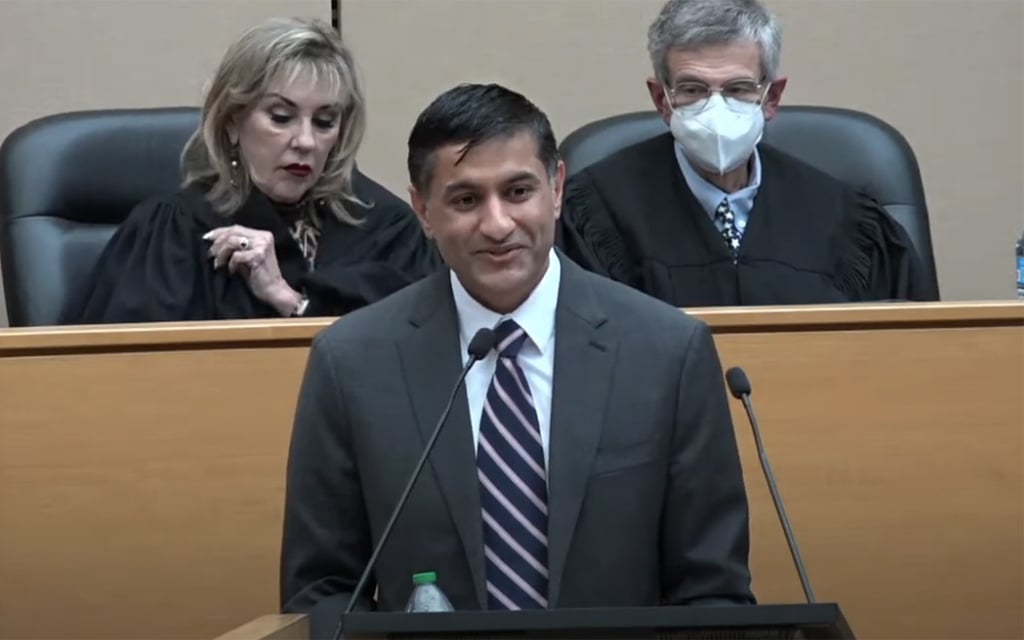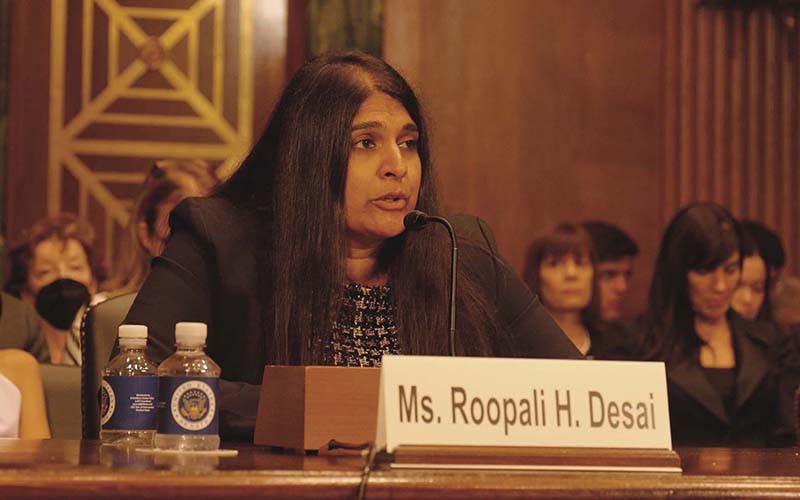WASHINGTON – President Joe Biden will nominate Phoenix lawyer Sharad Desai to the federal bench, the White House said Wednesday, making him the second South Asian federal judge in Arizona – after his older sister.
Biden named Judge Roopali Desai to the 9th U.S. Circuit Court of Appeals, which handles cases from nine western states, in 2022.
“It’s truly remarkable to think about how much I have followed her in my life,” Desai said at his sister’s investiture ceremony on Jan. 23, 2023, his voice choking with emotion. “I saw what Roopali accomplished, and that has paved the way for me.”
She was a drum major, so he became one. She played tennis, he said, so he did, too. And then, when his sister was a first-year law student, he was weighing whether to study medicine or law. “I thought, ‘Wow, she is so dedicated to justice and I am too, and this is what I want to do,’ so I went to law school as well,” he said.
A member of the South Asian Bar Association of Arizona, Desai is currently vice president and general counsel at Honeywell International in Phoenix.
Roopali Desai was a prominent voting rights lawyer who had fought claims of 2020 election fraud when Biden tapped her for the 9th Circuit. The court is based in San Francisco, but she sits in Phoenix.
“If he’s got the same genes as she does, he’s going to be a great judge. I don’t have any doubt about it,” said Carl Tobias, a law professor at the University of Richmond and an expert on judicial nominations.
Another sister, Shefali Milczarek-Desai, is a law professor at the University of Arizona.
Their parents immigrated from India.
“My parents have always instilled a deep sense of patriotism in my siblings and I,” Desai said at his sister’s investiture.
Tobias said it’s rare for relatives to serve simultaneously on the federal bench.
He recalled Judges Learned Hand and Augustus Hand – cousins who served together in New York on the 2nd U.S. Circuit Court of Appeals, which during the 1930s and 1940s became known as the “Hand court” during their overlapping careers.
“It’s fascinating and an occasion for joy, but also it means she’ll be reviewing his stuff,” Tobias said, adding that she would likely have to recuse herself on any case her brother handled on the lower court.
After law school at New York University, Desai clerked for Arizona Supreme Court Justice Rebecca White Berch, then joined Osborn Maledon, a Phoenix law firm where he later became a partner. In 2015 he moved to Honeywell.
He would be the fourth judge named in Arizona by Biden, according to the White House.
Arizona Sens. Mark Kelly and Kyrsten Sinema issued statements of support for the nomination.
“Sharad Desai possesses the experience, integrity, and intellect to serve as a federal judge in the U.S. District Court for the District of Arizona,” said Sinema, an independent.
Kelly, a Democrat, called the nominee “experienced and well-regarded by Arizona’s legal community.”
According to the White House, 37 of 205 judges nominated by Biden and confirmed by the Senate have been Asian American, Native Hawaiian or Pacific Islander, including Judge Desai.
Sharad Desai would be the 38th.
“Having an Asian American presence on the federal bench in Arizona is going to enhance public support among the Asian community for the federal judiciary,” said Charles Geyh, a law professor at Indiana University who has studied judicial nominations.
Diversity on the bench can minimize the risk of racial bias, he added.
“Having a greater mix enables that judge to be having conversation within the district and essentially to address the kinds of biases that can arise when deciding racial discrimination cases, certainly ones involving … people of Asian ancestry,” Geyh said.
Democratic presidents have typically pushed to broaden the federal judiciary at least since President Jimmy Carter in the 1970s, he said, adding that Biden “has really made a concerted effort with the lower courts to focus on bringing a diverse array of candidates.”


